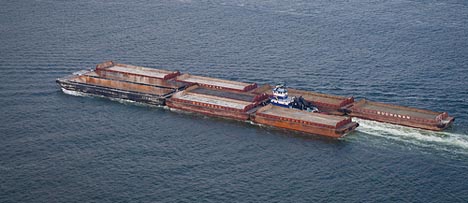Supermarket chain Franprix on Monday inaugurated their new aquatic delivery system, which is being used to stock 80 of their 350 stores in the centre of the French capital.
In a modern variation on the agricultural deliveries of times past, 26 containers of goods daily will be carried by river from a depot east of the city to a central distribution point located near the Eiffel Tower.
Trucks will still be used to transport products from the docks to stores, but the switch to barges for the journey into the city will take 15 lorries per day off the streets of Paris and save 234 tonnes of carbon dioxide emissions annually, according to the company.
In itself, that will not have a major impact on pollution in a city that generates two million tons of emissions each year.
But Franprix and the maritime and city authorities involved in the pilot project are hopeful that the idea of making greater use of the Seine will catch on quickly.
Franprix director Jean-Paul Mochet said water-born deliveries were no more expensive than using lorries. "And it means less pollution, fewer traffic jams and a lot less noise," he said.



 Please whitelist us to continue reading.
Please whitelist us to continue reading.
Member comments